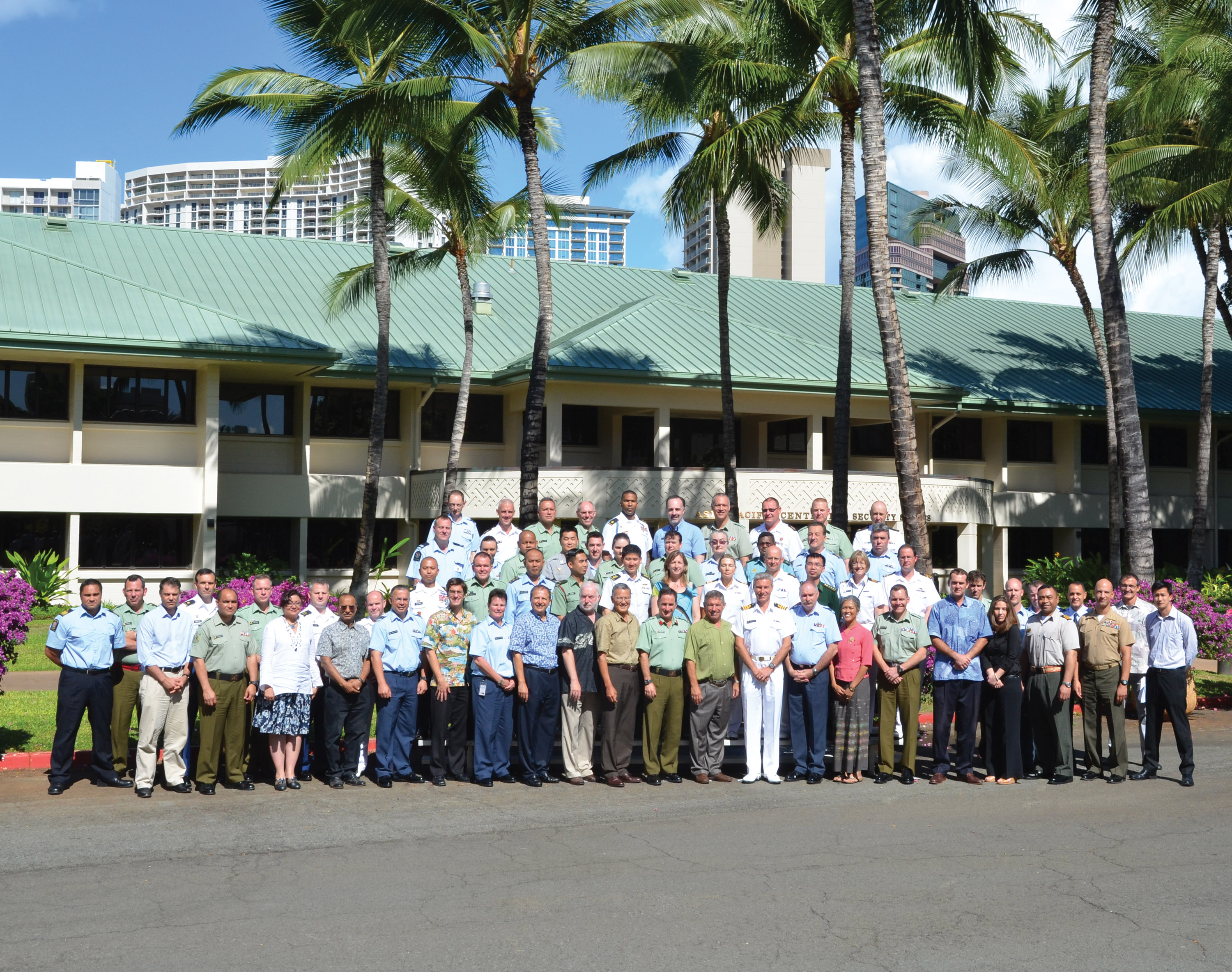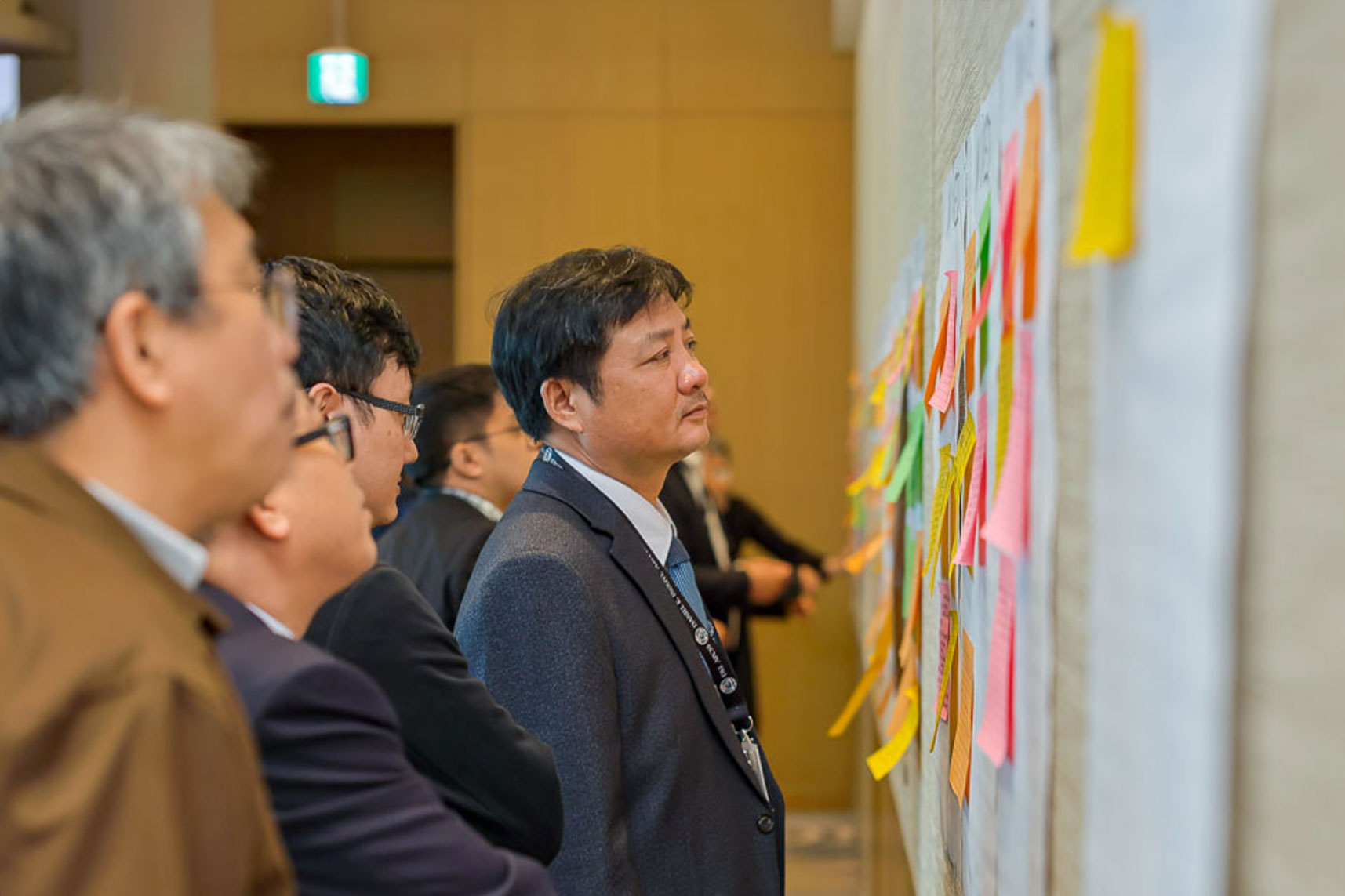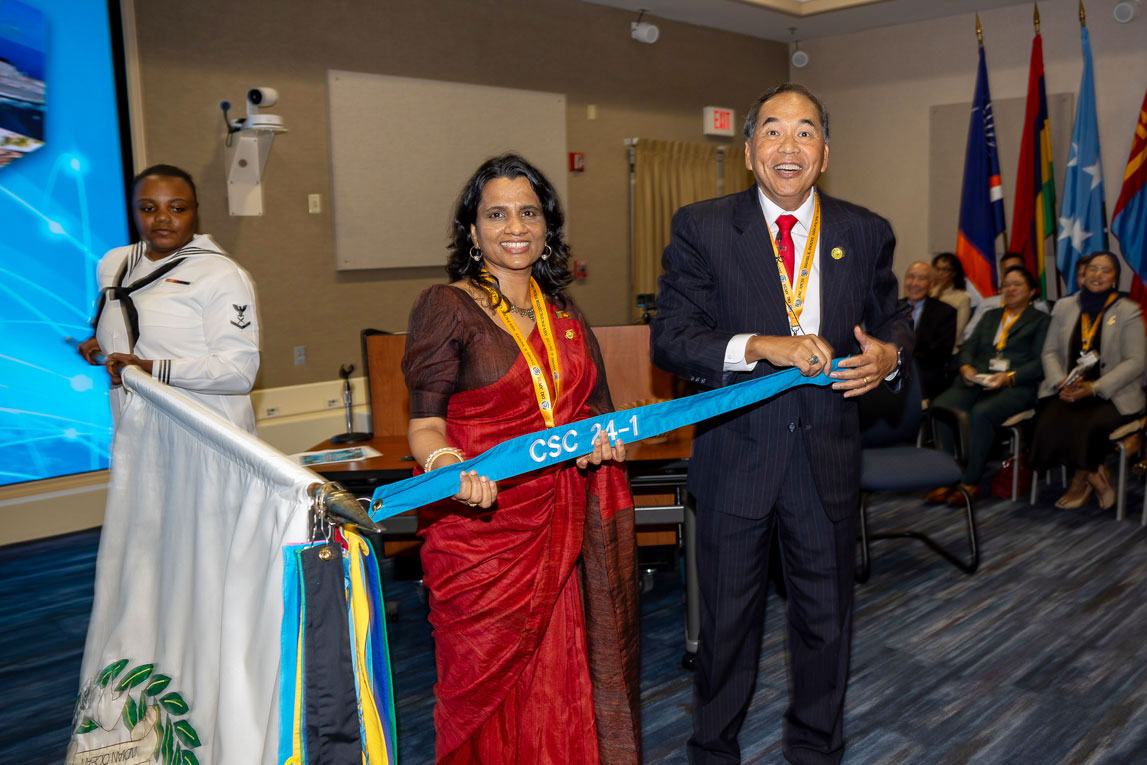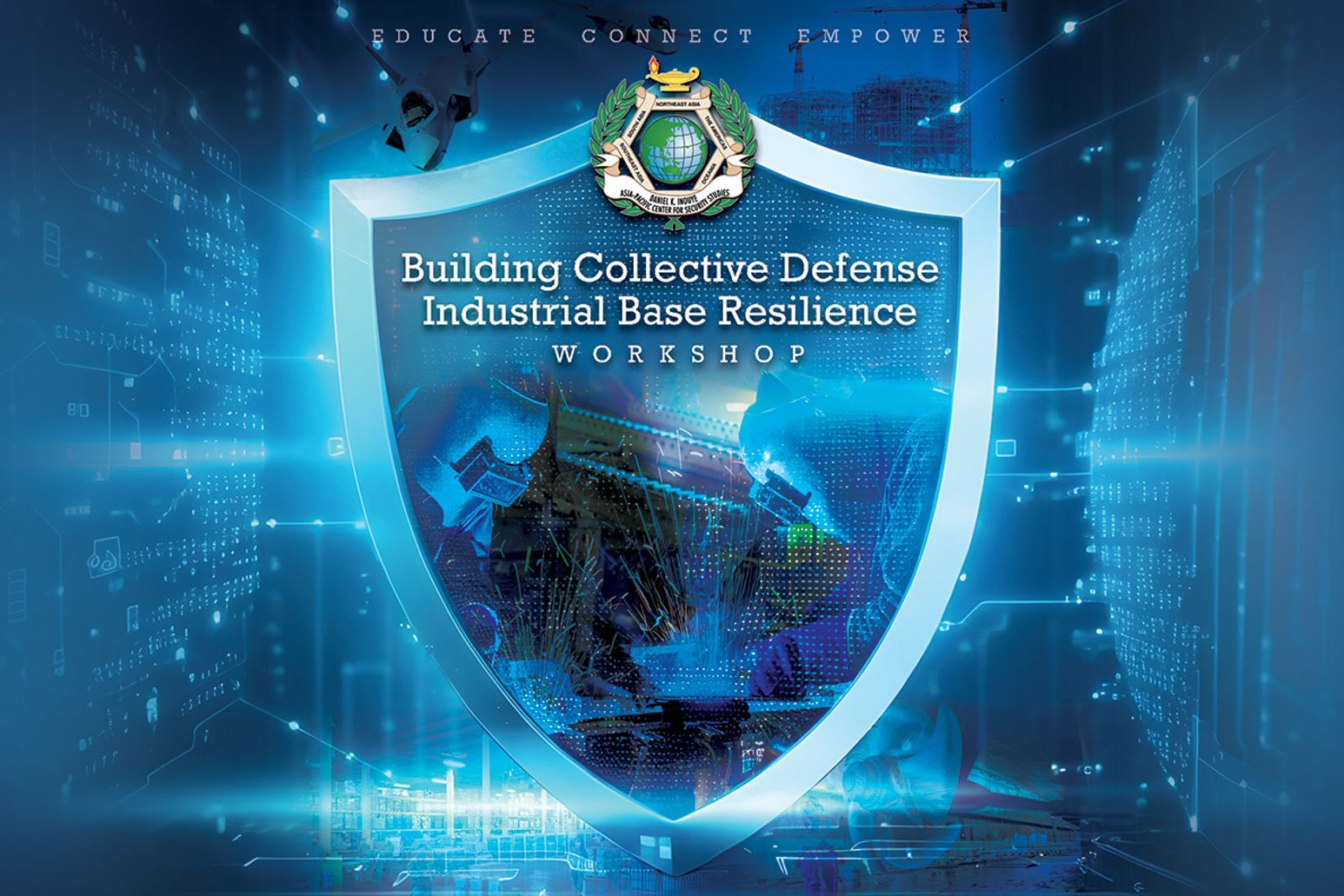Fellows and faculty from the New Zealand Defense Force (NZDF) Command and Staff College (CSC) attended a joint workshop hosted at the Asia-Pacific Center for Security Studies (APCSS) from November 4-7. Focused on security dynamics and cooperation in the Asia Pacific region, this was the third consecutive year that the Center has partnered with the NZDF, providing the venue, facilities and educational resources to support the first of three stops on the college’s annual study tour.
The 56 participating Fellows were a mix of military professors, officers, and Non-Commissioned Officers (NCOs), along with government officials, representing ten countries, including New Zealand, Australia, Indonesia, Malaysia, Papua New Guinea, Republic of Korea, Singapore, Tonga and the United States.
Designed to support the curriculum objectives of the NZDF-CSC annual course, the joint workshop explored prevalent and emerging transnational trends, geopolitical influences, and ongoing security cooperation efforts within the region. Each topic was examined from a New Zealand perspective, specifically assessing the countries’ role within the region’s security architecture. Other highlights of the week long session included a senior enlisted Non-Commissioned Officers (NCOs) discussion panel comprised of representatives from each U.S. military branch and international military forces, a visit and orientation briefing with U.S. Pacific Command, and tours of several museums and historical sites on the island of Oahu.
Dr. Rouben Azizian of the APCSS College of Security Studies, and Dr. Peter Greener, NZDF-CSC Dean of Academic Faculty, served as co-chairs for a joint faculty team that lead the workshop. In addition to the off-site tours, daily sessions consisted of a balance of lectures, plenary discussion and small seminar working groups. The event culminated with each small seminar group presenting analysis of New Zealand’s role in the region and how it and other nations in the area could optimize their security cooperation in the future.
Summarizing the effectiveness of the joint workshop, Dr. Greener noted, “The workshop ran seamlessly due to the thorough planning and coordination that goes into this event by both faculty groups.”
Highlighting its productivity, Dr. Azizian added “There was overwhelming feedback on the outputs from the workshop, including long-term visions for regional capacity building in the future which will enhance New Zealand’s role in regional security.”
APCSS held this joint workshop while simultaneously hosting 100 Fellows for the Asia Pacific Orientation Course (APOC) 13-3. The faculty and staff of the Center were able to mutually support each course during the week, running them concurrently but autonomously, through maximum use of the Center’s advanced facilities.
Concluding the week, the NZDF-CSC Commandant presented the title of honorary professor to Dr. Azizian for his extensive contributions to their college for the past few years, noting that they hoped this level of collaboration would continue in the future. Separately, the faculty leaders shared their mutual opinion that this workshop collaboration has helped to improve military relations and dialogue between the U.S. and New Zealand over the past few years. “The APCSS faculty and staff members are excited to work with the New Zealanders because they are engaged, candid and very consistent in the exchange of ideas,” said Dr. Azizian.
-End-
Note: More photos of this workshop may be found on Facebook here:
The Regional Security & Cooperation in the Asia-Pacific Workshop
U.S. and New Zealand Senior Enlisted Leaders Hold Forum at APCSS










Leave A Comment